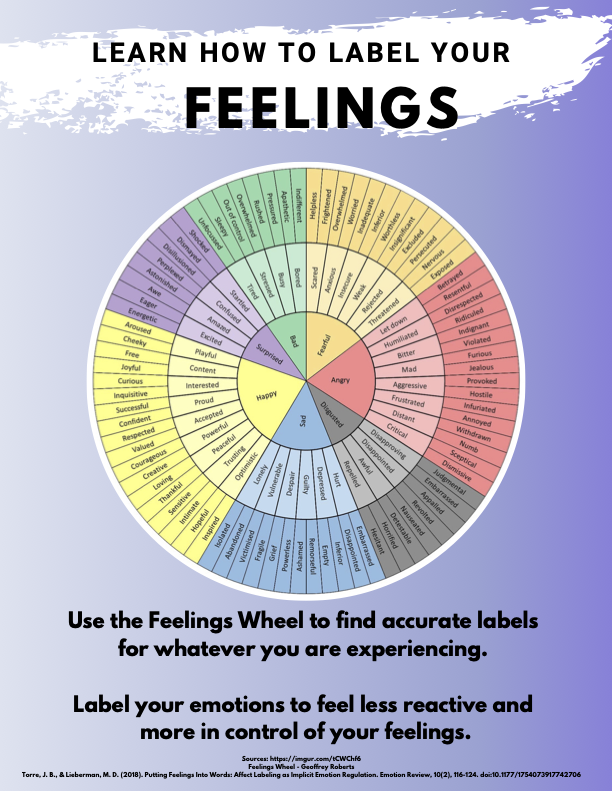Identifying and Processing Emotions
Emotions are a core part of who we are and how we experience the world. Our emotions often change without our conscious awareness based on our perceptions and desires. Learning about our emotions helps is an essential component of mental wellness. When we can understand our emotions, we are better able to respond to situations in the ways that we want to.
Identifying our emotions is the first and foundational step in learning about our emotions. In order to do this, we can start by developing language to describe our emotions. There are some basic emotions that most of us can identify like sad or happy. But there are more complex emotions as well such as courage or embarrassment. You can learn about them using this Emotions Wheel. Next, you may start to learn about how different emotions feel in your body. Noticing a tightness in your belly, tingling in your fingers, lightheadedness, warmth in your chest can help you identify where these emotions are felt in the body. Eventually you may start to develop a curious attitude about yourself, your emotions, and the emotions of others. This will help you navigate your inner life and relationships with others more easily. Mindfulness is an excellent way to start to develop this skill as you “tune in” to what’s happening in your mind and body.
Processing our emotions is the next step after learning how to identify our emotions. It is important to accept and acknowledge all of our emotions, and remember that there are no “bad” emotions, and that experiencing uncomfortable emotions does not make us “bad people”. We may judge ourselves, or feel judgment from others when we express our emotions which can make it very challenging to process our emotions in a healthy way. Understanding our emotions, where they come from, and how we act when we feel a certain way are all components to learning self compassion and healthy emotional processing. Naming, noticing, and letting go is a great place to start. “Feeling your feelings” may be uncomfortable at first, but over time you will find that when you stop suppressing your emotions, you will start to feel more mental clarity and less distress.


